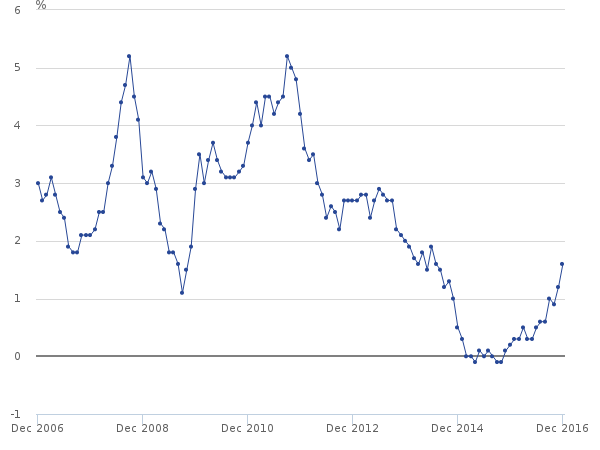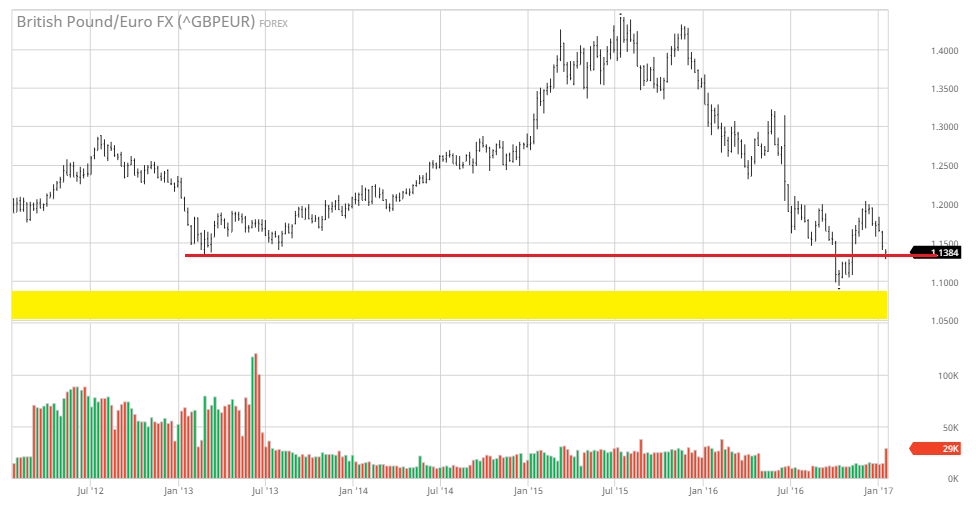Immediately after the U.K’s Brexit vote, economists predicted that Britain would fall into recession. That hasn’t happened. In fact, the most recent PMI surveys from Markit indicate the manufacturing and service sectors strengthened in the 2H16 and are poised to continue growing in the immediate future.
But now another potential problem has emerged: inflation. The most recent Markit reports specifically mention heightened pricing pressures as does the latest CPI figure from the ONS.
Let’s begin with this chart from Tuesday’s inflation report:

The latest Y/Y inflation reading was 1.6%. As shown in the chart above, the Y/Y rate has been increasing strongly over the last 9-12 months.
The latest Markit Service report also talks about increasing costs:
Cost pressures remained elevated at the end of 2016. Input prices rose at the second-fastest rate since April 2011, again linked to the weak pound. Higher food and fuel prices were widely mentioned, while labour, IT and oil-based items such as packaging were also cited as being up in price. As a result, service providers raised their own charges at the fastest rate since April 2011.
The manufacturing release contained similar information:
The increase in purchase prices was the eighth in as many months. Companies linked this to the weak exchange rate driving up import costs. Among firms offering a reason for higher input prices, 75% made some reference to the exchange rate (compared to 90% in October and 84% in November). There was also mention of the rising cost of commodities like oil and steel.
And adding to the problem is the weakening position of the pound:

All of these factors could wind up forcing the BOE to raise rates by year end or perhaps sooner.
